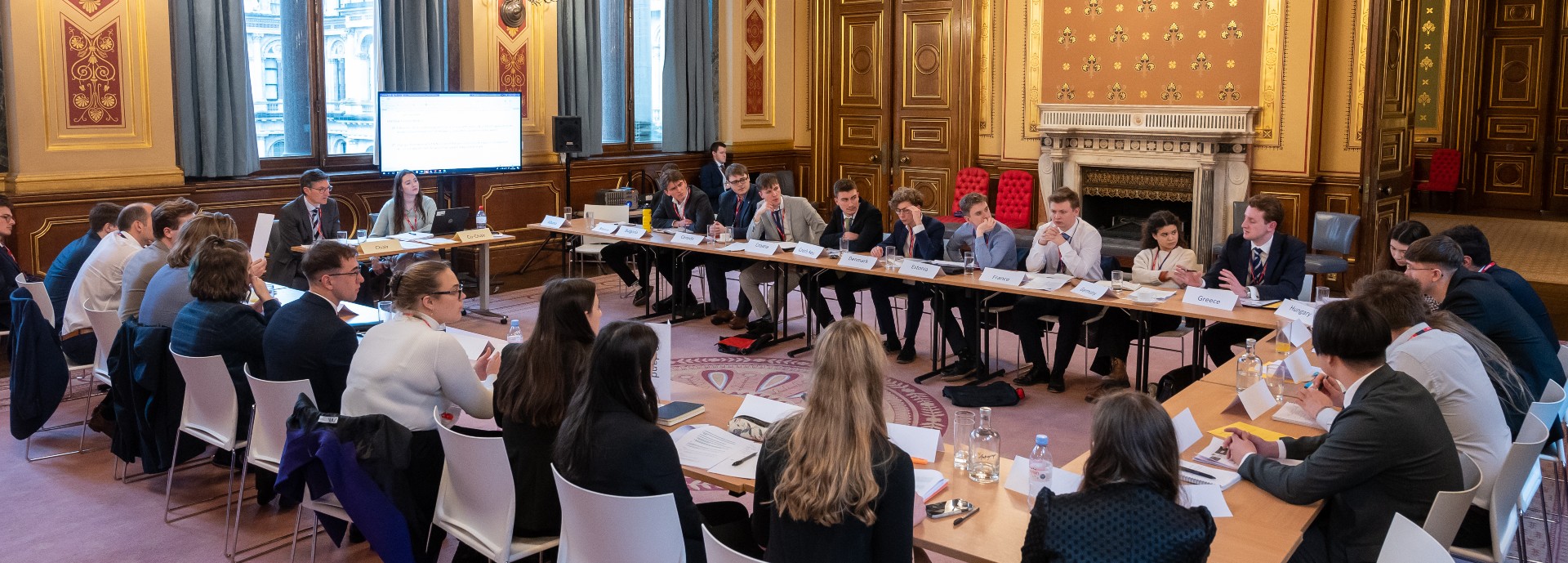A University of Stirling politics student has been recognised for her role in a NATO simulation exercise held at the Foreign Office.
Abbey Stroud, a third-year student studying International Relations, received a ‘Distinguished Delegate’ award at Model NATO, an annual event attended by 15 universities across the UK, which aims to replicate the work of the North Atlantic Council – NATO’s principal political decision-making body – by simulating the response to a major crisis.
The University of Stirling – the only Scottish university chosen to attend the event – had six students in total take part in the simulation, which is hosted by the British International Studies Association (BISA), the UK Foreign, Commonwealth and Development Office, and the UK Delegation to NATO.
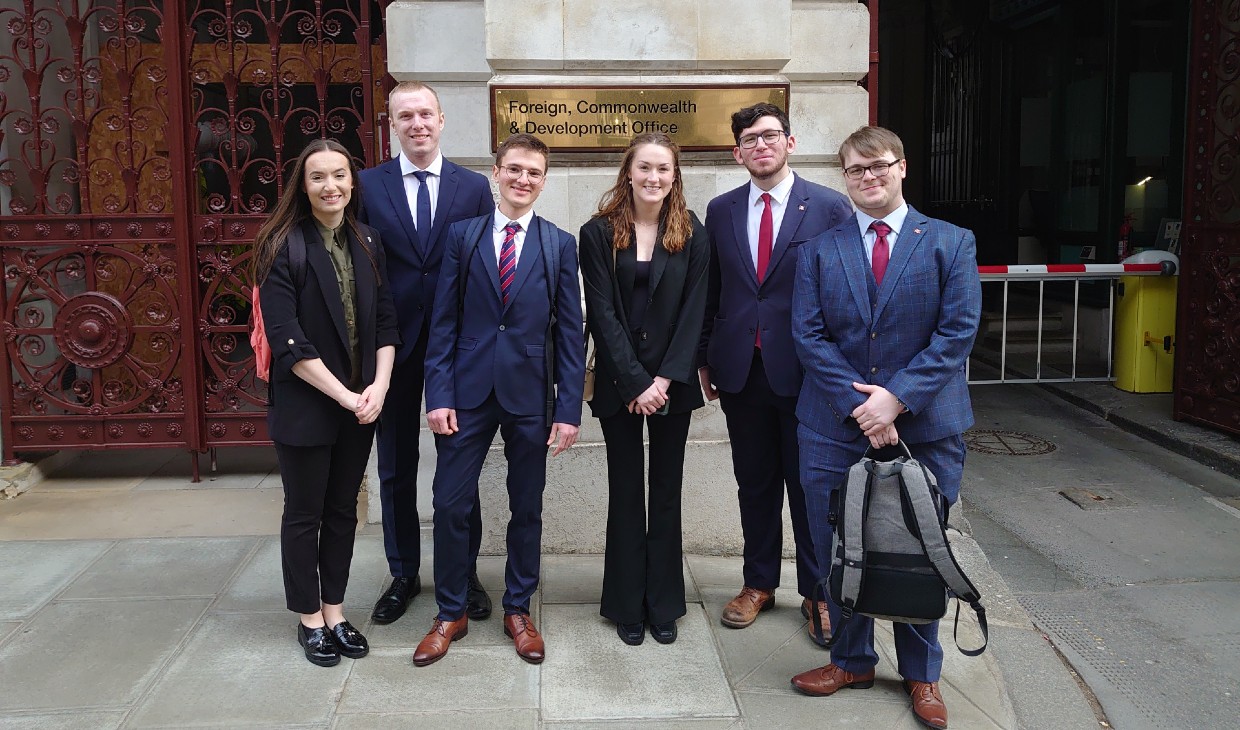
Laura McKenzie, Michael Reid, Nicolas Dupuis, Abbey Stroud, Dimitrios Terzis and Sam Fraser were chosen to attend Model NATO at the Foreign Office in London.
Students were each assigned a NATO nation to represent and carried out in depth research of their allocated country’s resources and political positions prior to the event. They were then provided with briefings on the disaster in hand – multiple earthquakes across the Mediterranean and south-east Europe resulting in significant loss of life and mass displacement of populations – and had to come together to discuss and agree a response.
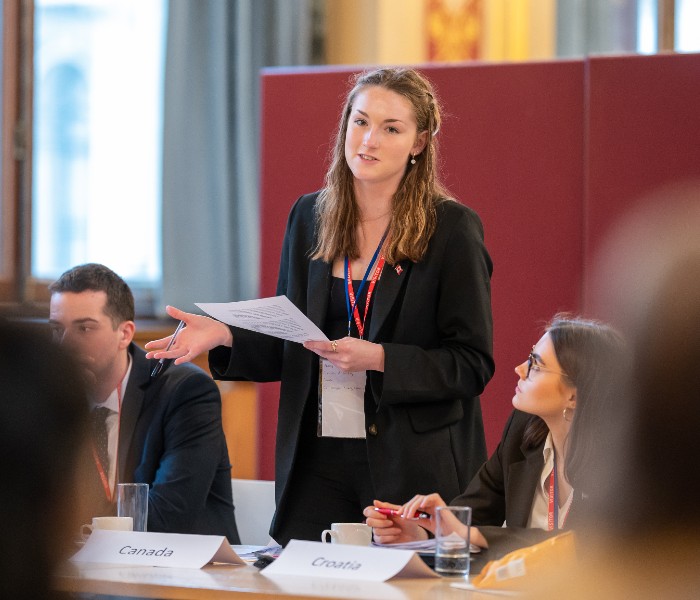
International Relations student (Photograph by David Tett Photography)
Model NATO allowed me to experience the inner workings of this international institution, specifically under crisis, and practice valuable skills like critical decision making and high-pressure negotiations.
Abbey, who is currently on an exchange programme from Mount Allison University in Canada, said: “On the day, my role was on the Civil Emergency Planning Committee which is responsible for organising the direct response through collaboration and dispersion of resources. The most challenging part was when the conditions of the crisis were altered, and the committee had to work together to quickly adjust these resources to apply in an evolving situation.
“The event has made me more passionate about international affairs and has made me re-think the career path that I would like to take in the future. I would now very much consider working in NATO or a similar international institution. Model NATO has given me a much better understanding of the importance, significance and power of NATO in crisis situations.”
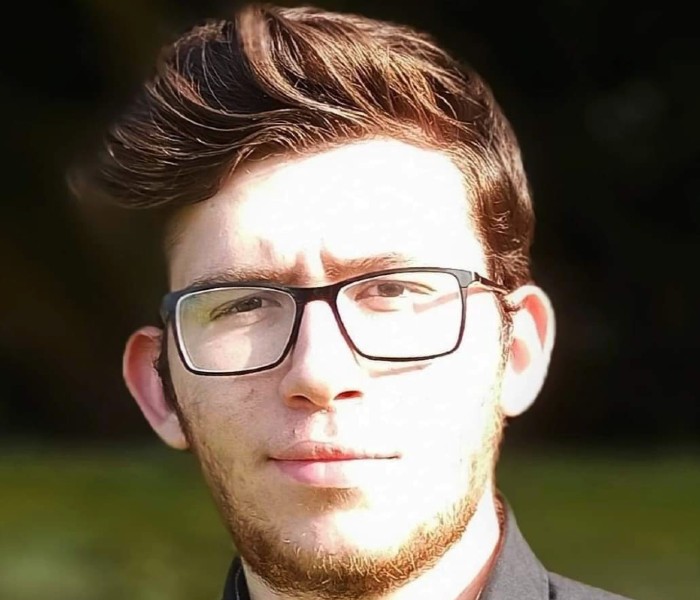
Politics and Economics student
Negotiating and forming an agreement was a challenge, but it helped develop my skills in public speaking, research and team working, which will be useful to me in my future career
Dimitrios Terzis, a final-year politics and economics student at Stirling, who also attended the event, said: “Being a diplomat for a day was an amazing experience and the fact the whole event took place inside the Foreign, Commonwealth and Development Office really added to the experience. It was extremely interesting to learn about the inner workings of the country I was given to represent – Canada – and to protect its national interests while also collaborating to find solutions to the disaster.
“It was easy to forget for the day that we were students – it really felt like we were doing something meaningful to resolve the crisis presented to us. That made the simulation an exceptional experience. Negotiating and forming an agreement was a challenge, but it helped develop my skills in public speaking, research and team working, which will be useful to me in my future career.”
Dr Megan Dee, Lecturer in International Politics at the University of Stirling, said: “Abbey’s award is a real achievement and testimony to the hard work and professionalism she, and her fellow University of Stirling delegates put into this simulation. Model NATO is an amazing active learning opportunity for our students.
“We are immensely proud of each of them for taking part and contributing so brilliantly to the deliberations.”
Mark Webber, BISA President and a NATO specialist, said: “Participation in Model NATO gives an insight into the challenges of making decisions in a large international organisation. A Model such as this has obvious educational benefits, but it is also enjoyable and fun. The experience of being ‘in role’, articulating the position of a country and meeting with other delegates, is both challenging and inspiring. It was fantastic to once again be able to give students the opportunity to go to London and participate inside the FCDO offices.”
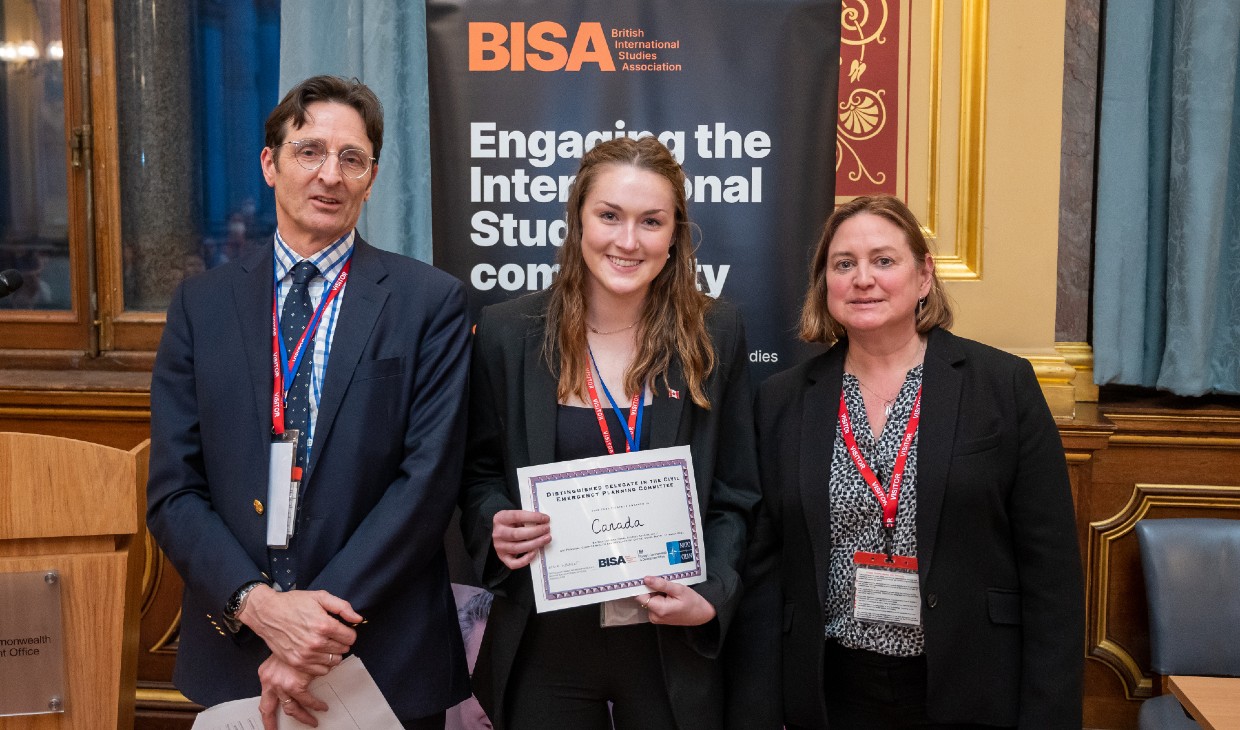
NATO specialist and Honorary President of BISA, Mark Webber, prize winner Abbey Stroud and BISA director Juliet Dryden.
All students received a commemorative certificate for their participation in the event.
Find out more about what took place on the day, and what the participants took from the experience, by watching short videos made by University of Stirling students Dimitrios Terzis and Abbey Stroud, on the BISA wesbite.

